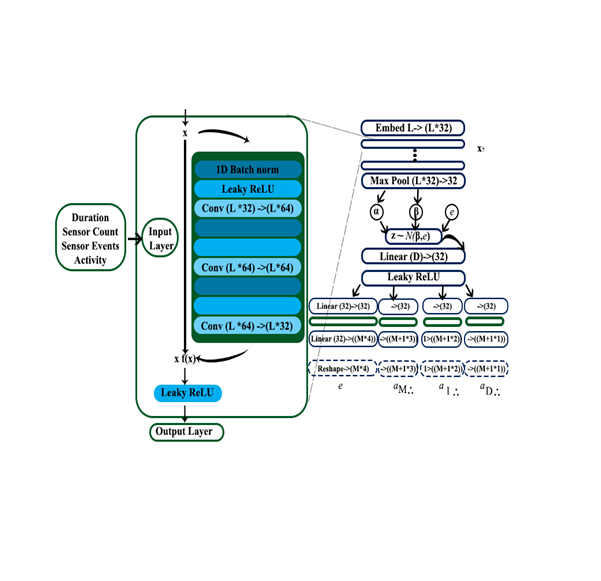Cognitive Based Attention Deficit Hyperactivity Disorder Detection with Ability Assessment Using Auto Encoder Based Hidden Markov Model
DOI:
https://doi.org/10.17762/ijcnis.v14i2.5464Keywords:
Neurogenerative disease, cognitive, ability assessment, Hidden Markov Model (HMM)Abstract
Attention deficit hyperactivity disorder (ADHD) is a frequent Neuro-generative mental disorder. It can persist in adulthood and be expressed as a cognitive complaint. Behavioural analysis of ADHD consumes more time. This is a multi-informant complex procedure due to the overlaps in symptomatology which is the cause for delay in diagnosis and treatment. Dur to these behavioural consequences and various causes, no single test is utilized till now for diagnosing this disorder. Hence, a diagnosing model of ADHD based on Continuous Ability Assessment Test (CAAT) can enhance and balance behavioural assessment. The objective behind this study is to use a deep learning based model with CAAT for predicting ADHD. The proposed Auto Encoder Based Hidden Markov Model (AE-HMM) produces low-dimensional features of brain structures, and a novel Pearson Correlation Coefficient (PCC) is employed for normalizing these features in order to minimize batch effects over populations and datasets. This goal is consistently achieved and thus the proposed model outperforms few standard approaches which are considered like CogniLearn and 3-D Convolutional Neural Networks (3DCNN). It is found that the proposed AE-HMM method achieves 93.68% of accuracy, 90.66% of sensitivity, 87.72% of specificity, 87.78% of F1-score and 74.22% of kappa score.
Downloads
Published
How to Cite
Issue
Section
License
Copyright (c) 2022 Author

This work is licensed under a Creative Commons Attribution-NonCommercial-ShareAlike 4.0 International License.




